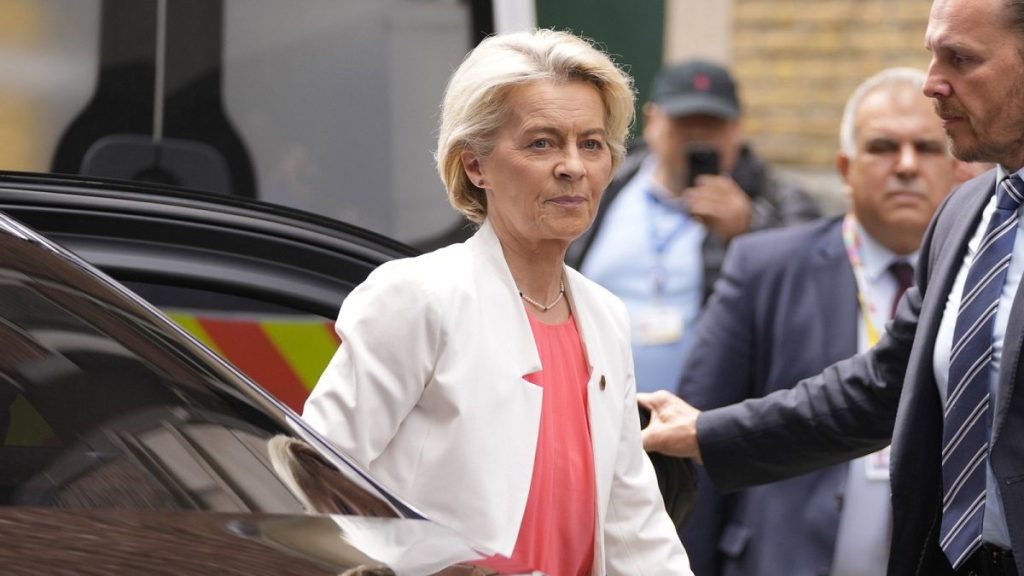Despite Ursula von der Leyen’s call for gender parity in her new College of Commissioners, only five out of the 17 EU countries that have named their nominees have put forth a female candidate. This means that only 29% of nominees are female, posing an early challenge for von der Leyen’s aim for gender balance in her second term. She had requested member states to nominate two candidates, one male and one female, but no one has followed through with this request yet. Von der Leyen is set to start interviewing nominees this week and allocate policy portfolios to them for appointment votes in September and October.
The most prestigious roles in the executive are set to be occupied by women, with von der Leyen as president and former Estonian Prime Minister Kaja Kallas as the EU’s foreign policy chief and one of the Commission’s vice presidents. The other female nominees come from Croatia, Spain, and Sweden. Men are dominating the race for the remaining Commissioner posts, with few rumored female picks in the countries yet to announce nominations. Von der Leyen has pledged to develop a “Roadmap for Women’s Rights” during her second term to address gender disparities, but her credibility as a women’s rights advocate is at stake if she cannot achieve gender balance in her own team.
Von der Leyen’s demand for two nominations representing both genders is not enforceable by law, and countries have justified flouting this request by selecting the best candidate for the job. Some countries have only nominated male candidates, despite taking gender parity seriously. The outgoing Commission under von der Leyen was the most equal to date, with 14 men and 13 women. In previous terms, women have been significantly underrepresented. The deadline for member states to submit their nominees is 30 August, and von der Leyen is expected to begin interviewing candidates soon.
As of now, only five out of the 17 EU countries that have named their Commissioner picks have chosen female candidates, representing just 29% of nominees. Von der Leyen had requested member states to nominate both male and female candidates in order to achieve gender balance, but no state has adhered to this request yet. The most prestigious roles in the executive are likely to be filled by women, with von der Leyen herself as president and other prominent female nominees from Croatia, Spain, and Sweden. However, men are currently dominating the race for the remaining Commissioner posts.
Von der Leyen’s credibility as a champion of women’s rights is on the line if she is unable to achieve gender parity within her team. Despite her pledge to develop a “Roadmap for Women’s Rights” during her second term, the lack of female nominees presents a significant challenge. Member states have justified nominating only male candidates as selecting the best candidate for the job. The outgoing Commission was the most equal to date, with nearly equal representation of men and women. Von der Leyen is set to begin interviewing nominees soon, with the aim of allocating policy portfolios for appointment votes in the European Parliament in September and October.













